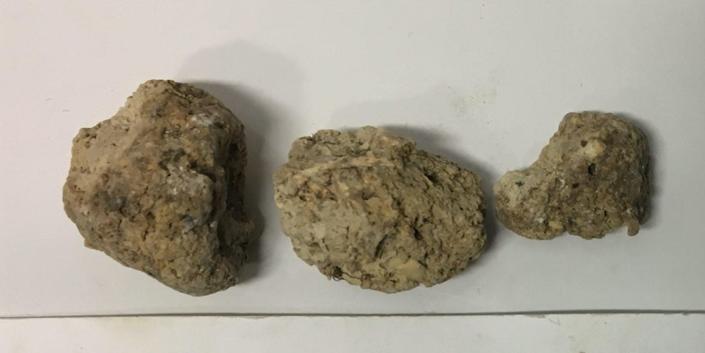
-
Researchers analyzed the feces of individuals who are believed to have created Stonehenge.
-
It was observed in a nearby settlement wherever personnel marked the design with lavish get-togethers.
-
The discovering presents clues about what transpired all through those celebrations, scientists advised Insider.
Prehistoric poop from 4,500 yrs in the past has presented new clues about the ritual celebrations that took area throughout the development of Stonehenge, researchers say.
Scientists analyzed coprolites — partly fossilized feces — left by human beings at he Durrington Partitions settlement, wherever humans are imagined to have stayed for the duration of the construction of the substantial stone monument in southern England.
The examine, revealed in the peer-reviewed journal Parasitology on Friday, was the to start with to demonstrate that the employees ate uncooked animal — internal organs — for the duration of lavish ceremonial feasts that took position to mark the building of Stonehenge.

Durrington Partitions: Stonehenge’s prehistoric get together town
Archeologists believe that the Durrington Walls web page, observed about 1.7 miles from Stonehenge, was the heart for ritual celebrations that took location through the building of the stone circle in 2,500 B.C.

Evidence indicates that for a interval of 10 to 50 many years neolithic human beings arrived from all corners of England all through the winter months to enable make the stone monument.
“They didn’t appear to dwell there continually. They lived in southern Britain, they farmed their crops in the summer season. And then they arrived to Durrington walls in the winter to not only place Stonehenge alongside one another but also to maintain religious festivals there,” research direct creator Piers Mitchell from Cambridge’s Department of Archaeology informed Insider.
The settlement was designed up of hundreds of wooden and chalk houses surrounded by three huge ceremonial buildings out of wooden pillars.
“To any person at that time, Durrington Partitions would’ve looked additional spectacular than Stonehenge,” Michael Parker Pearson, a guide archaeologist on the Durrington Partitions excavation web-site and an author of the study, explained to Insider. “It would’ve seemed magnificent”

These massive gatherings were marked by lavish feasts. Pigs and cows have been roasted on spits over roaring fires.
Evidence indicates pigs were shot with arrows as an alternative of becoming butchered. This could necessarily mean there were being sporting online games, demonstrations of power or coming-of-age ceremonies there, stated Susan Greaney an English heritage archaeologist who operates on Stonehenge and was not associated in the examine.
The food was so abundant that bones ended up discarded on to garbage heaps with meat even now attached and leftovers ended up specified to canines to try to eat, Parker Pearson explained
“This is a type of meat fest extravaganza,” he said. “It can be a sort of social gathering-based mostly purchaser internet site, which is naturally a huge magnet for people today to occur from many, quite a few miles away.”

Uncovering the menu
“Right up until we did this examine, no 1 experienced any concept if they had been having offal or not,” Mitchell explained.
Evidence of culinary tactics from prehistoric instances is scarce. Foods tends to disintegrate over time, but parasite eggs can provide very important clues into the life-style of individuals who still left no penned records.
5 of the coprolites, one particular of which was observed to be human and the relaxation from dogs, contained the eggs of parasitic worms.

The parasites that have been in the human feces would have come from the raw organs of infected animals, Mitchell explained.
“We knew that they had been taking in pigs and cattle, so it can be not shocking that they were feeding on just about every aspect of the animal,” Greaney explained. “But it really is the first time we’ve obtained evidence for that,” she explained.

The pet dog poop also experienced traces of freshwater fish parasites. This could be evidence that the pet dog traveled from an area of England exactly where there were lakes.
This was also unforeseen simply because archaeologists feel having fish was taboo about this time, maybe for the reason that people put their cremated dead into rivers, Greaney mentioned.
“It truly is a bit of a leap to go from like one dog taking in 1 fish to indicating that people today had been fishing,” she stated. “But it does elevate exciting issues about that.”
Go through the primary write-up on Business enterprise Insider





More Stories
Real Estate Agent Job Description
5 Steps To Being A Real Estate Negotiating Professional!
An Introduction To Real Estate Property Management Software